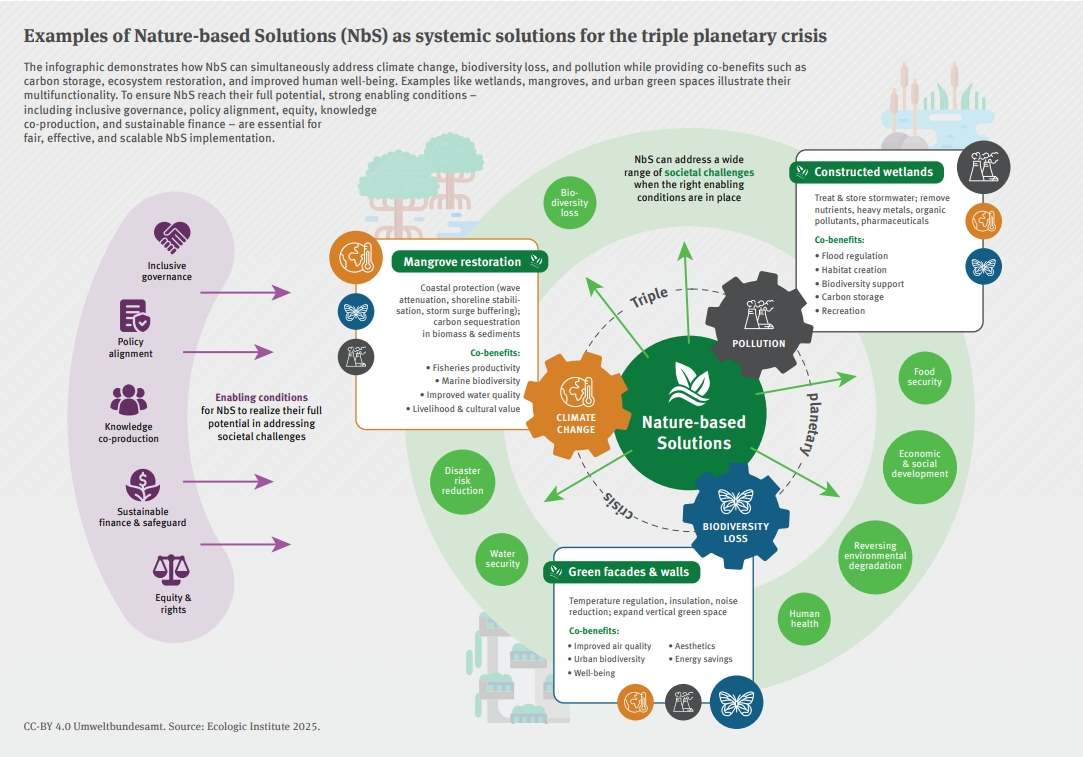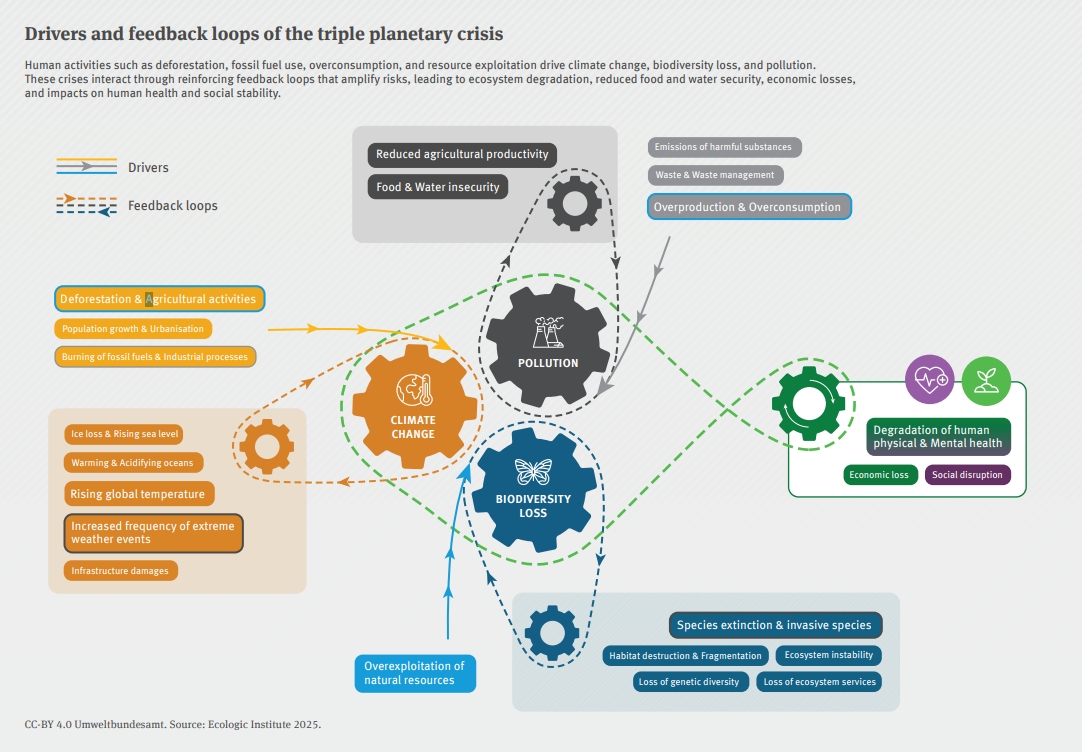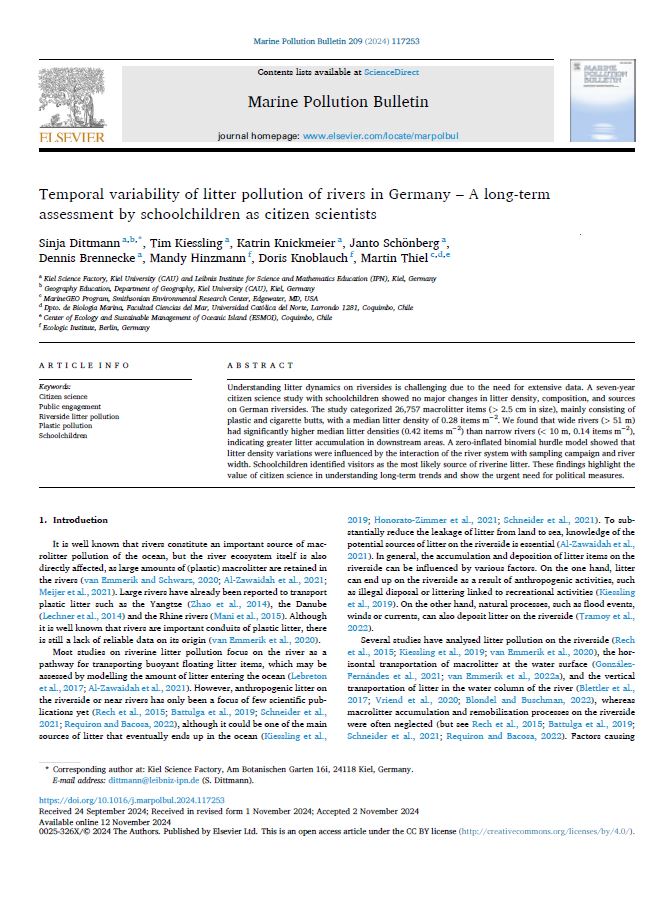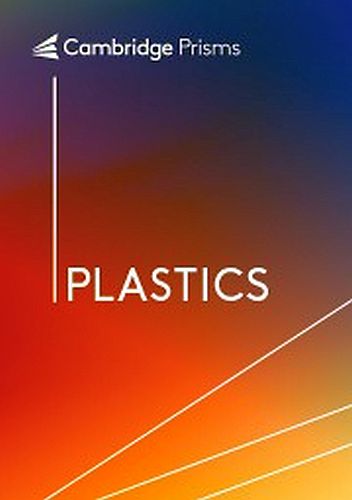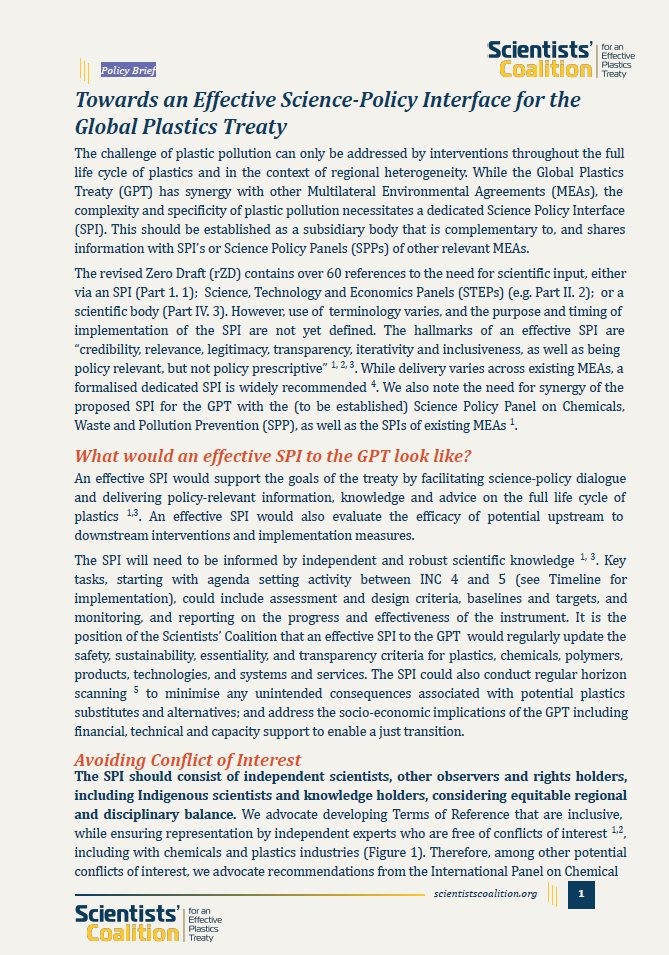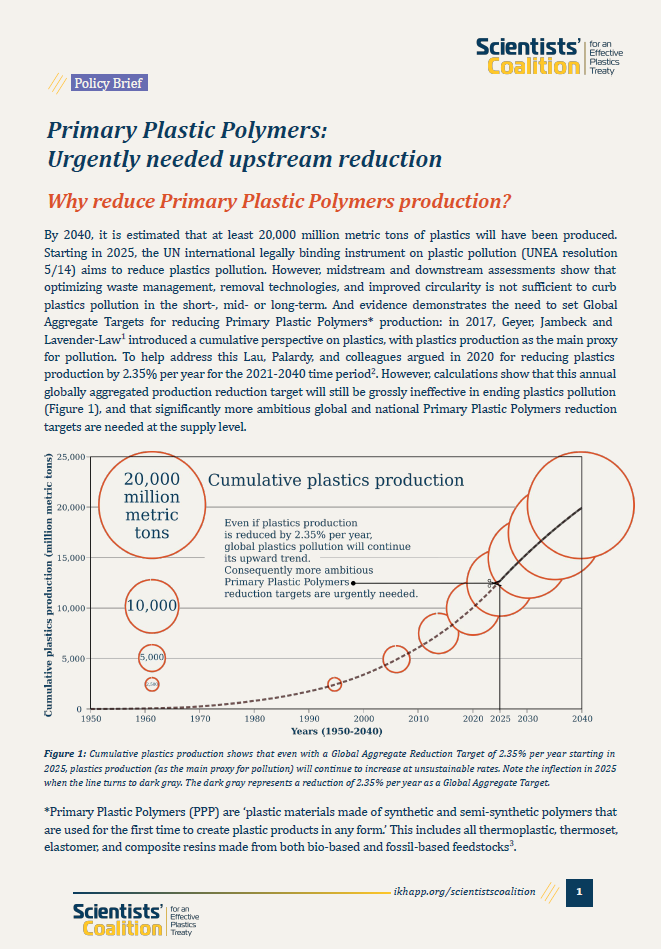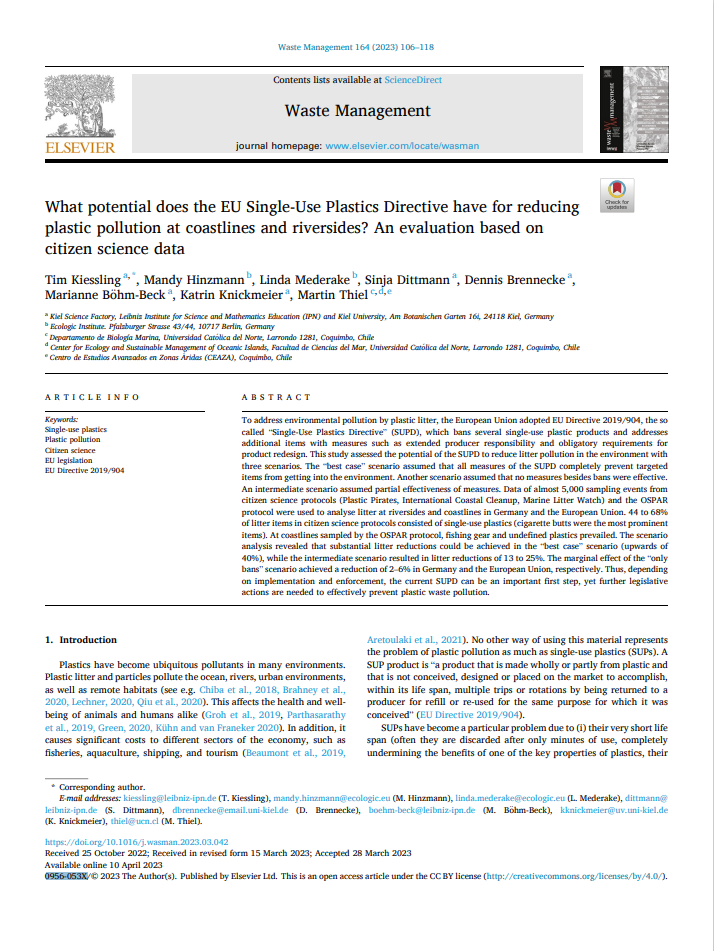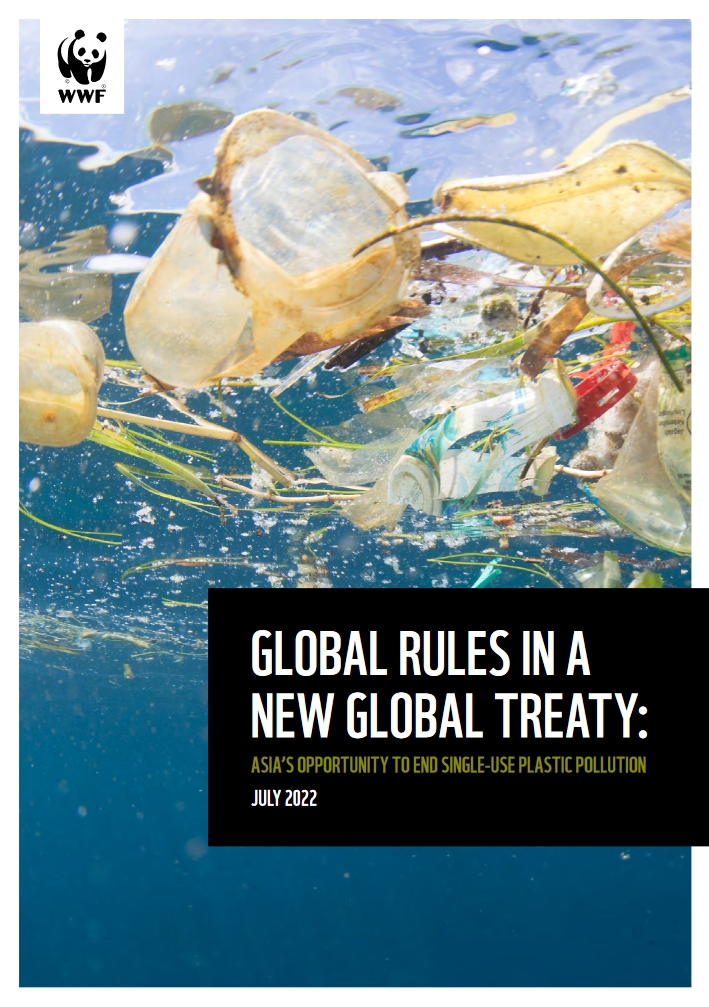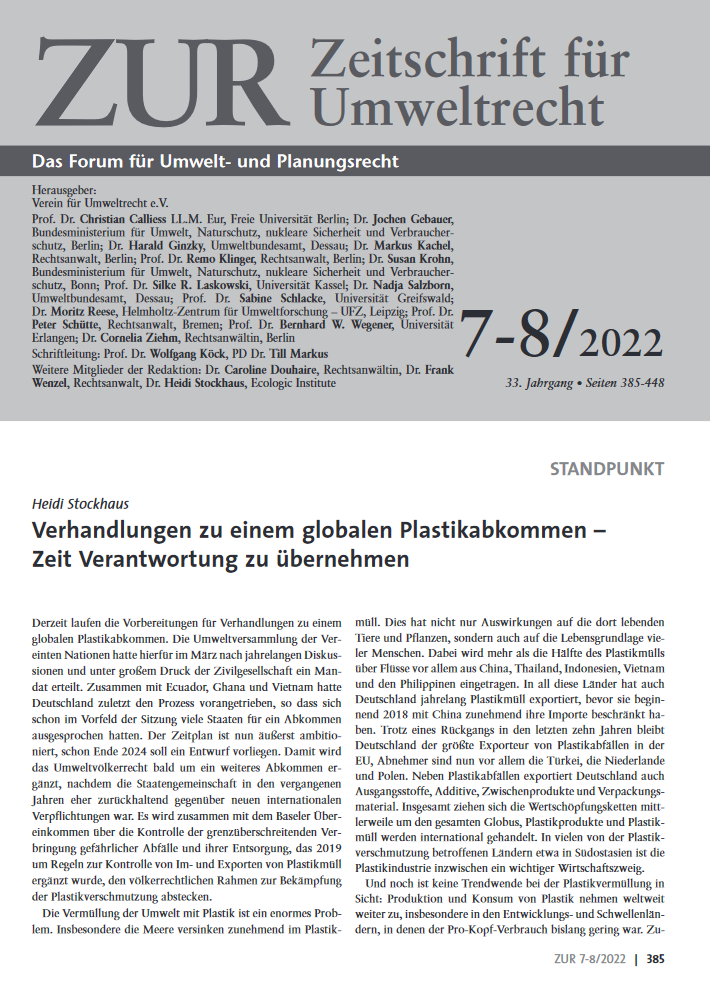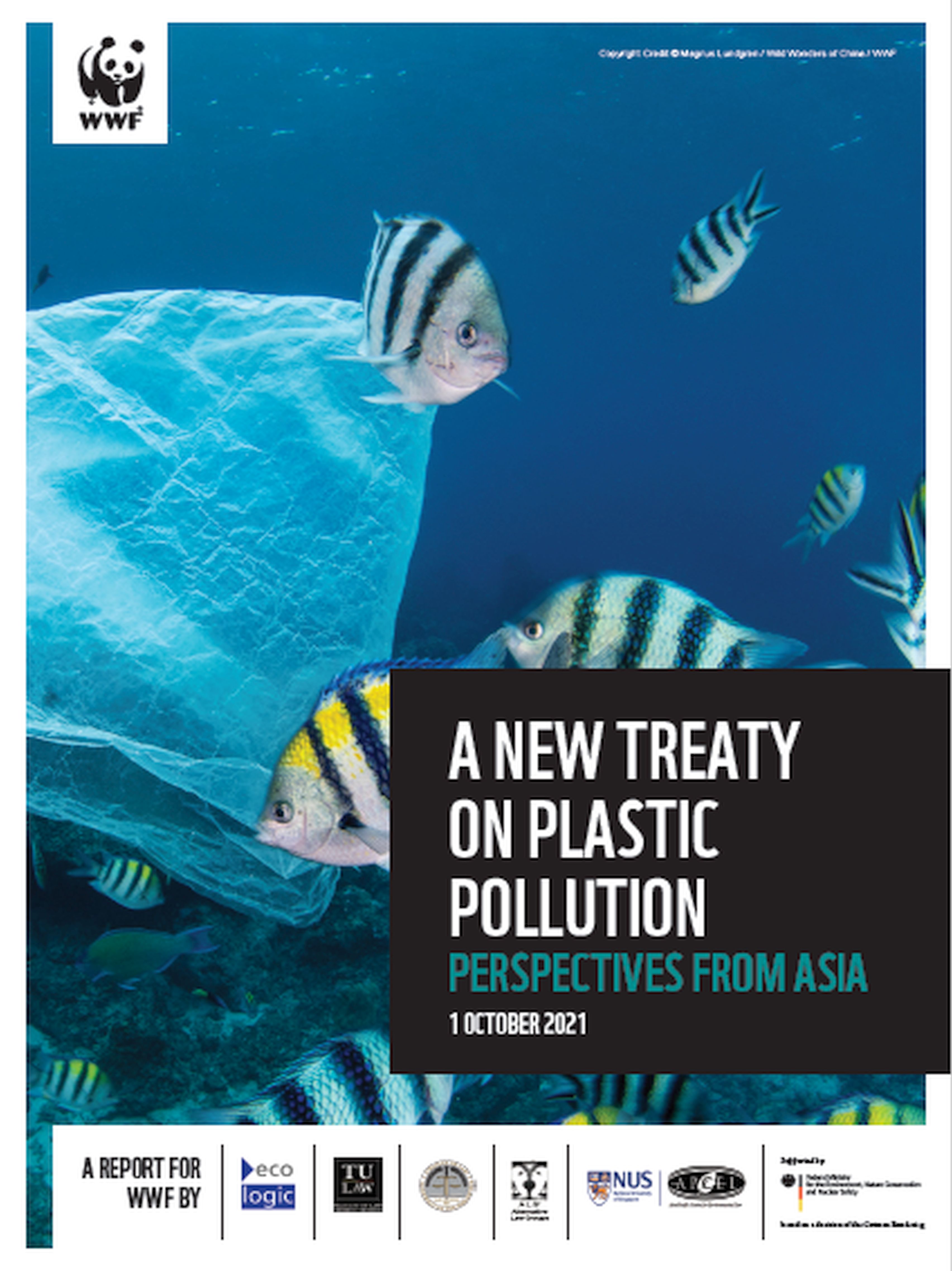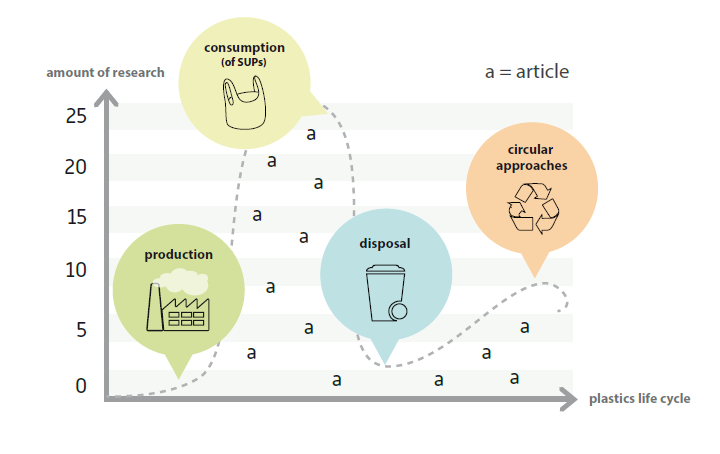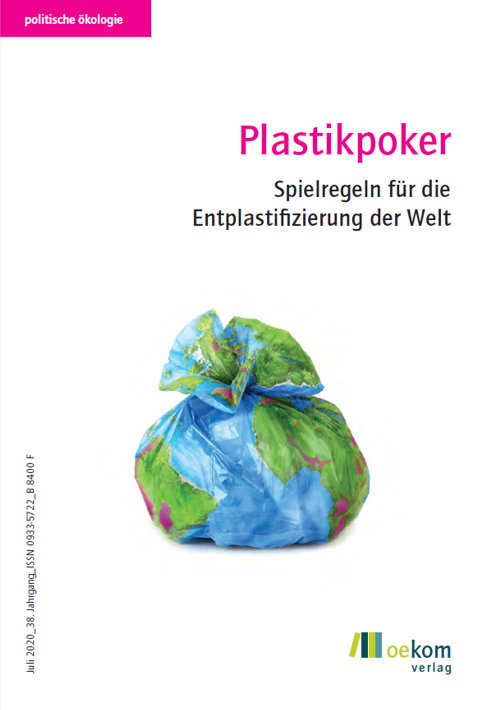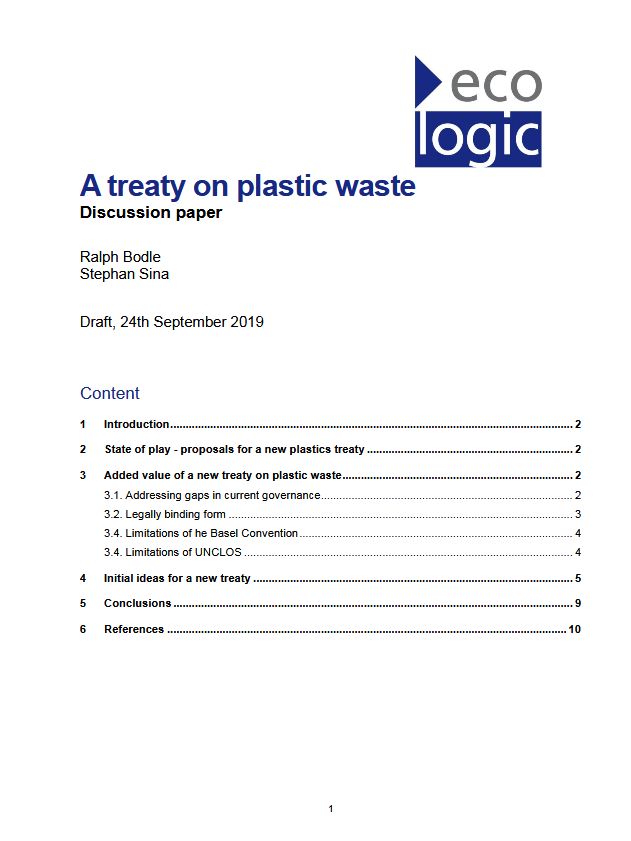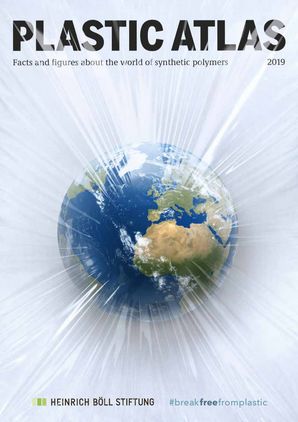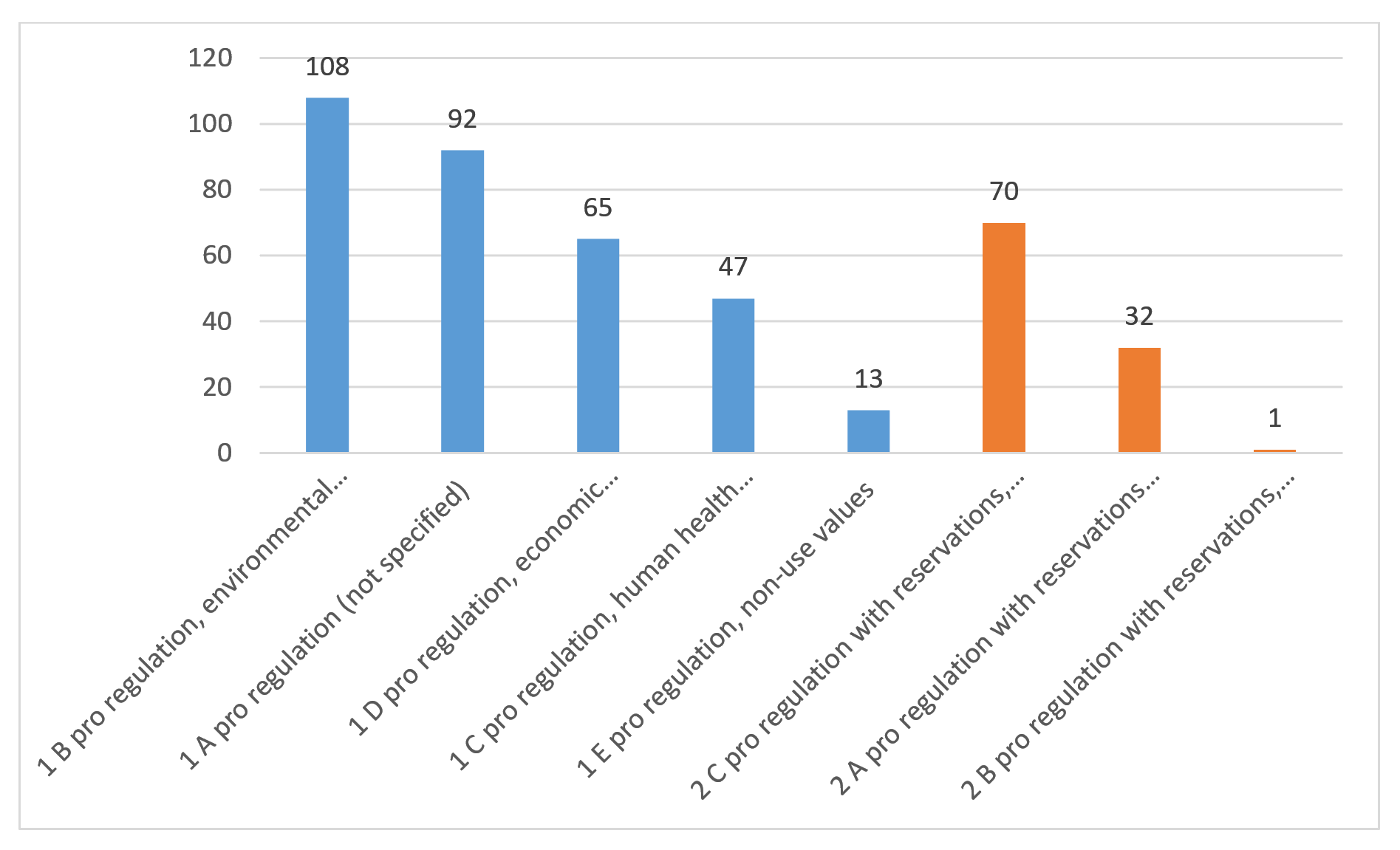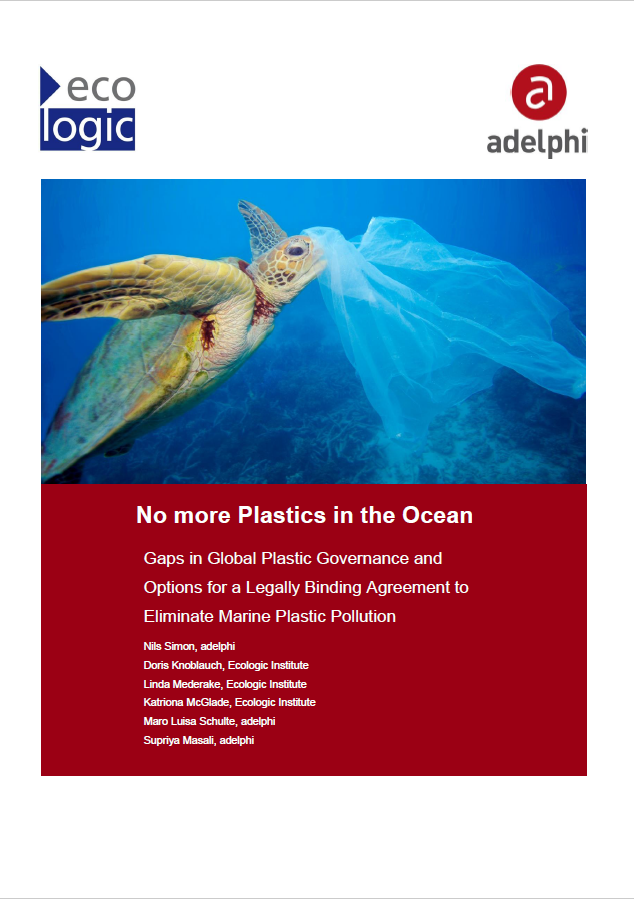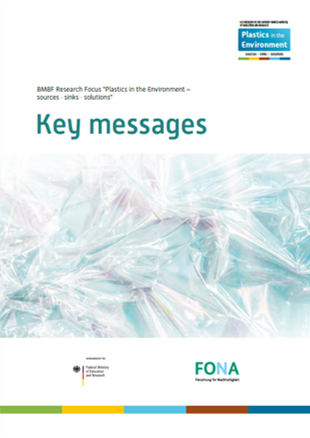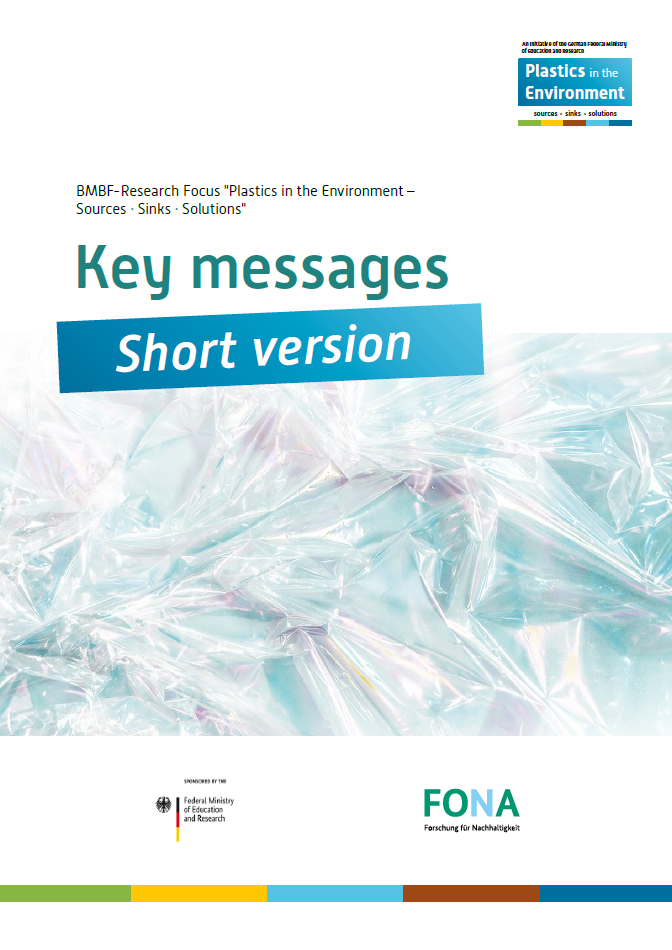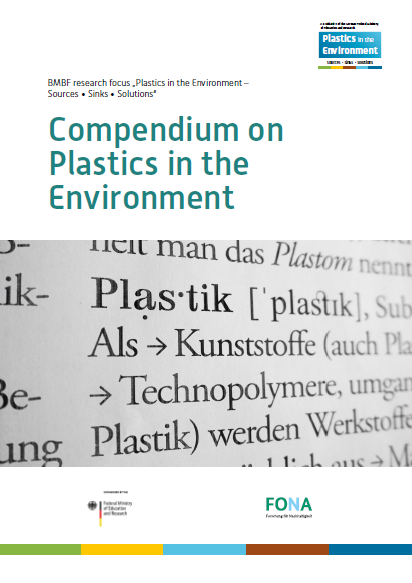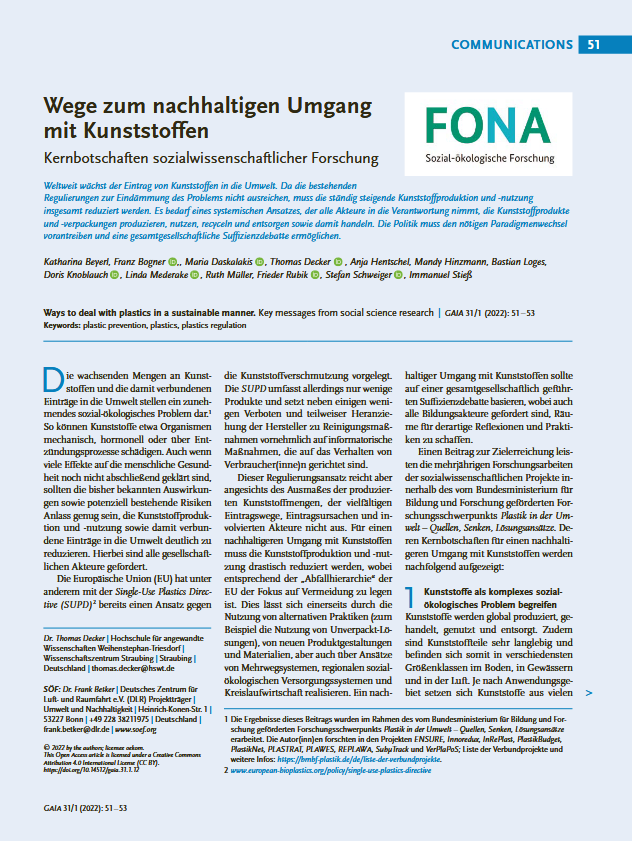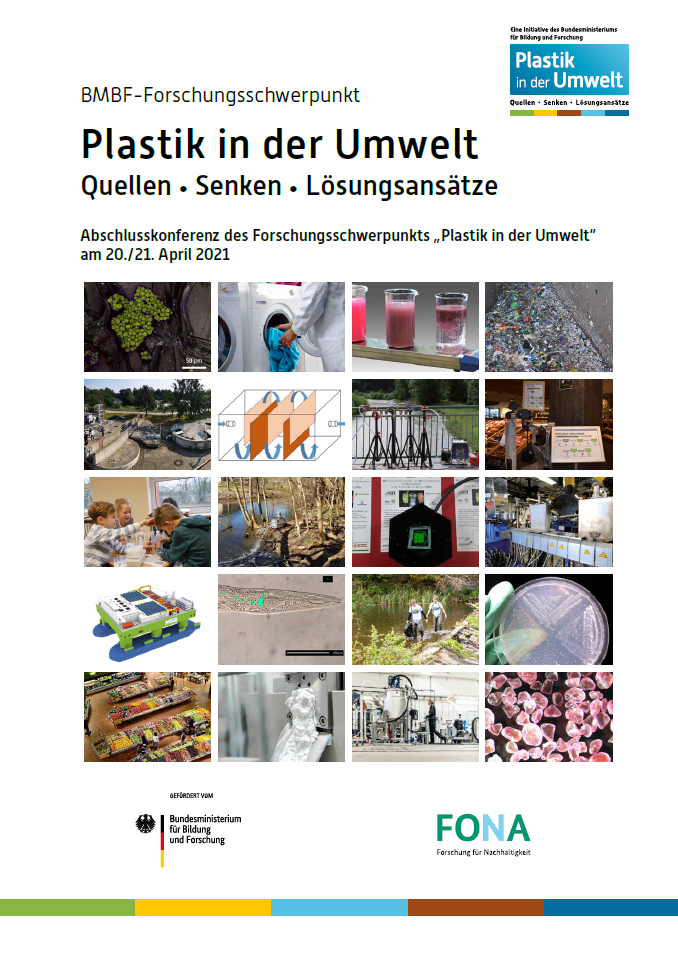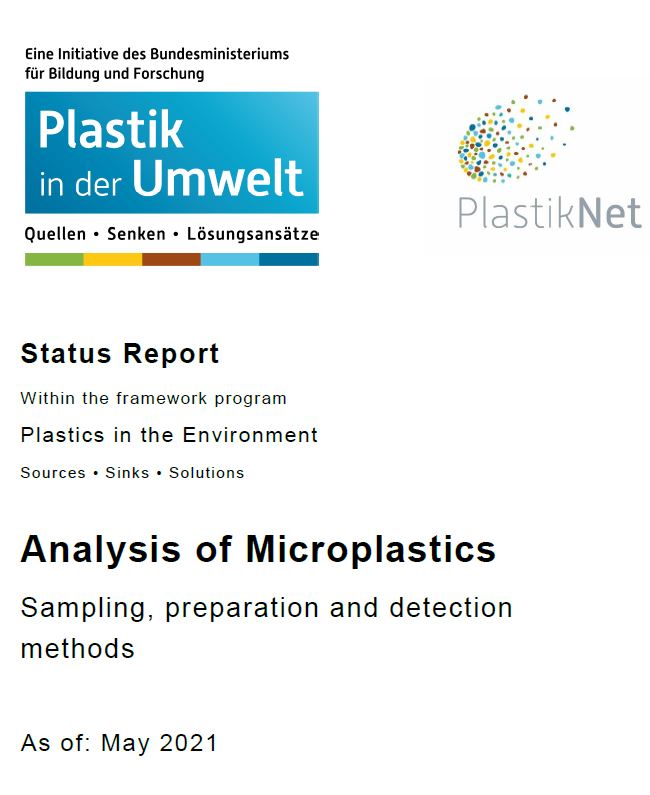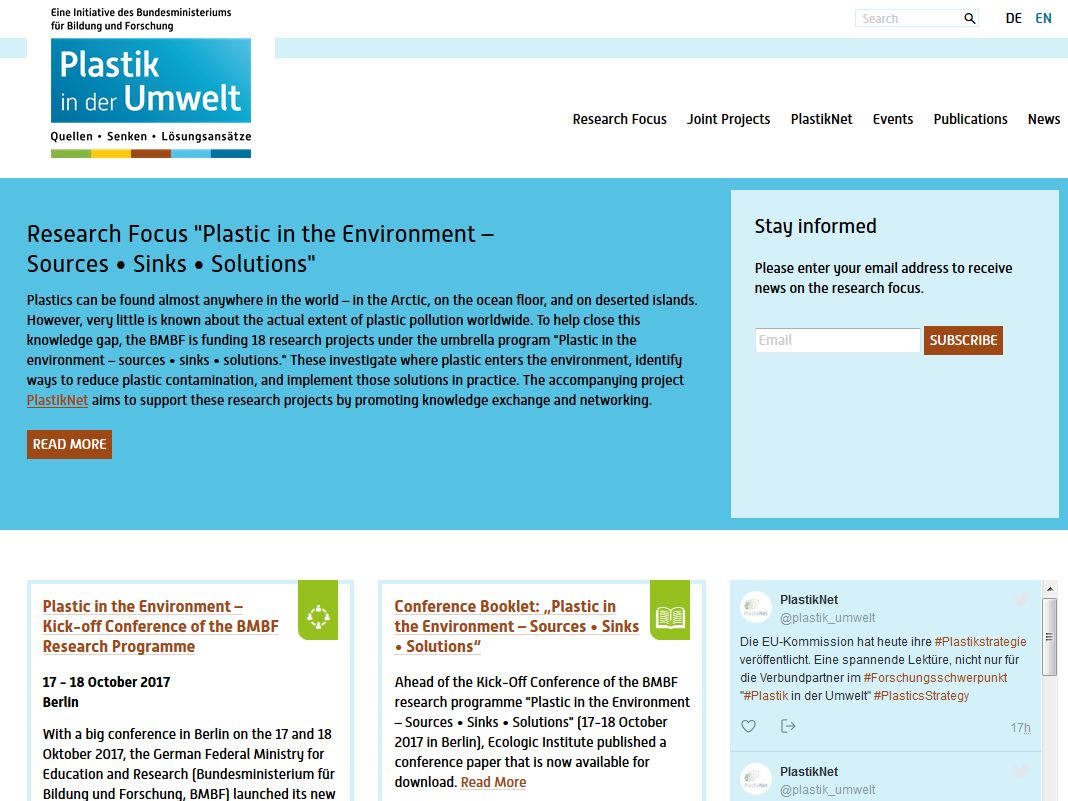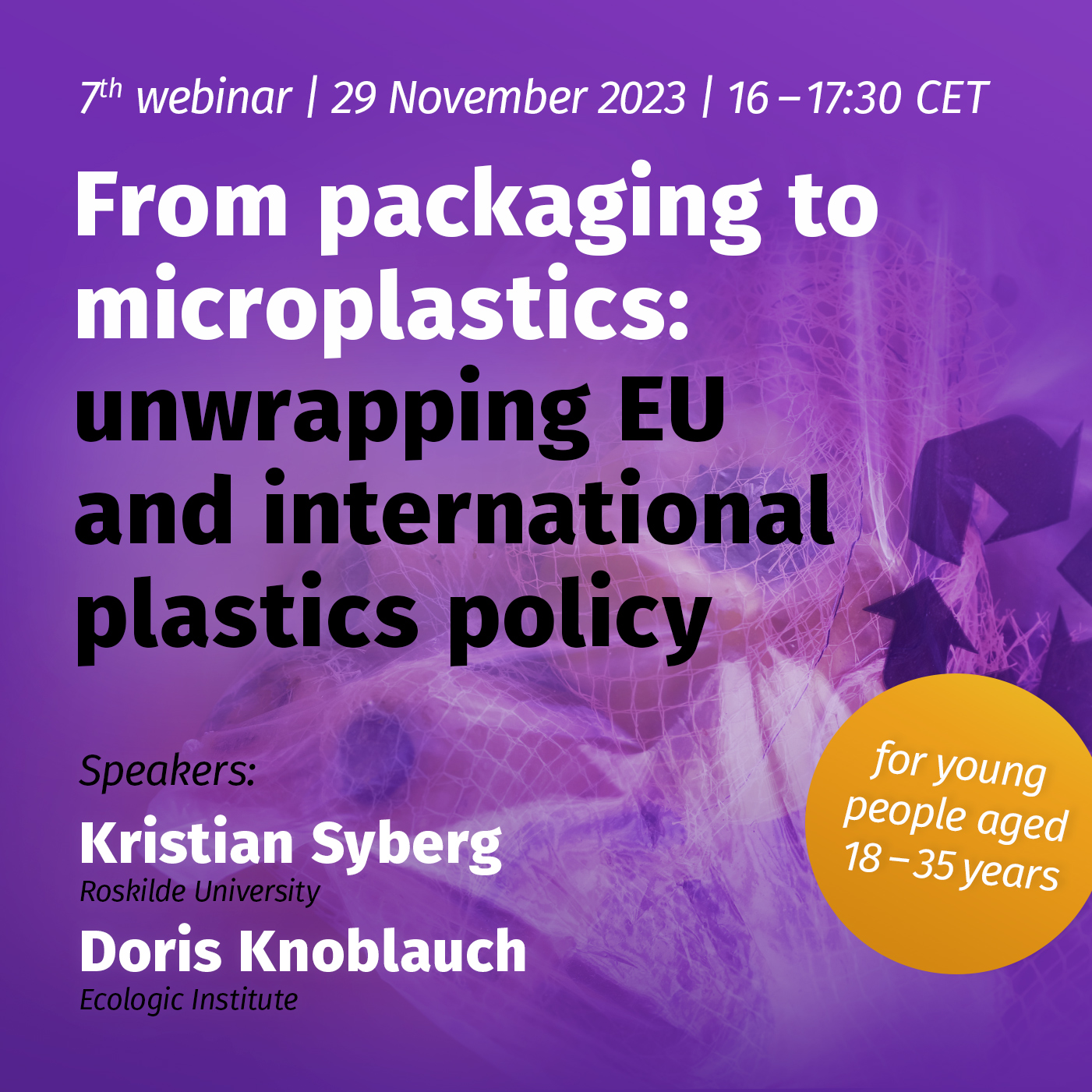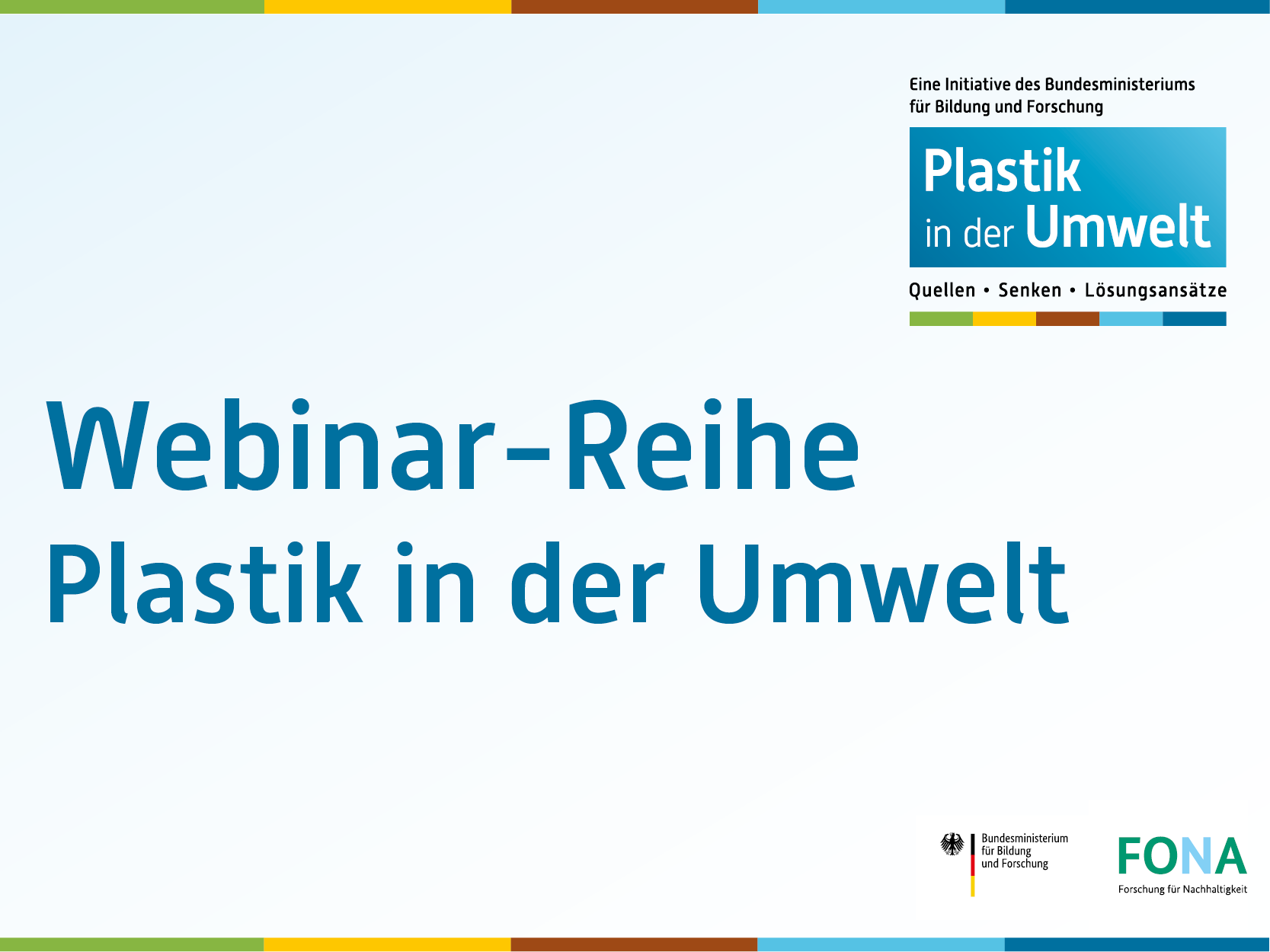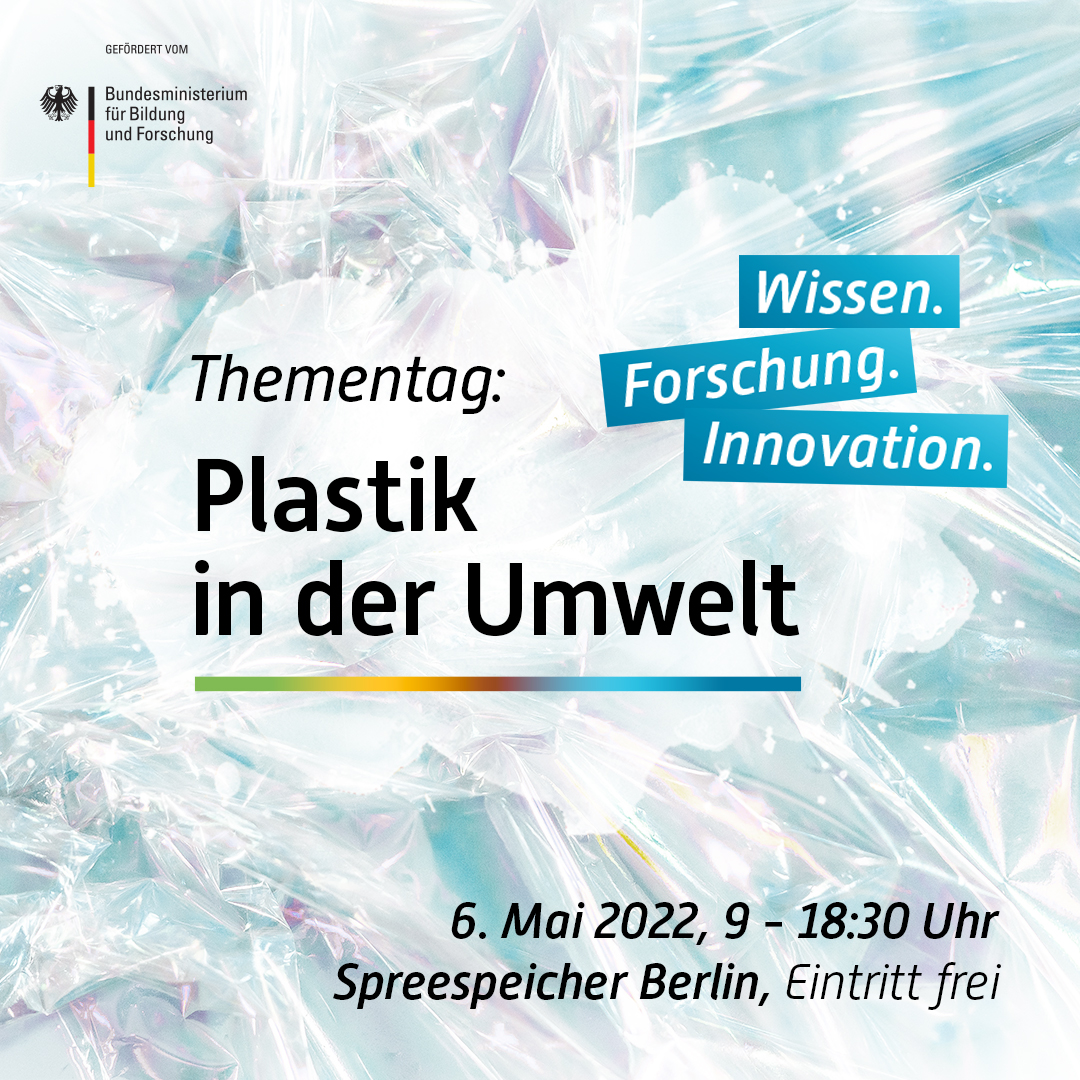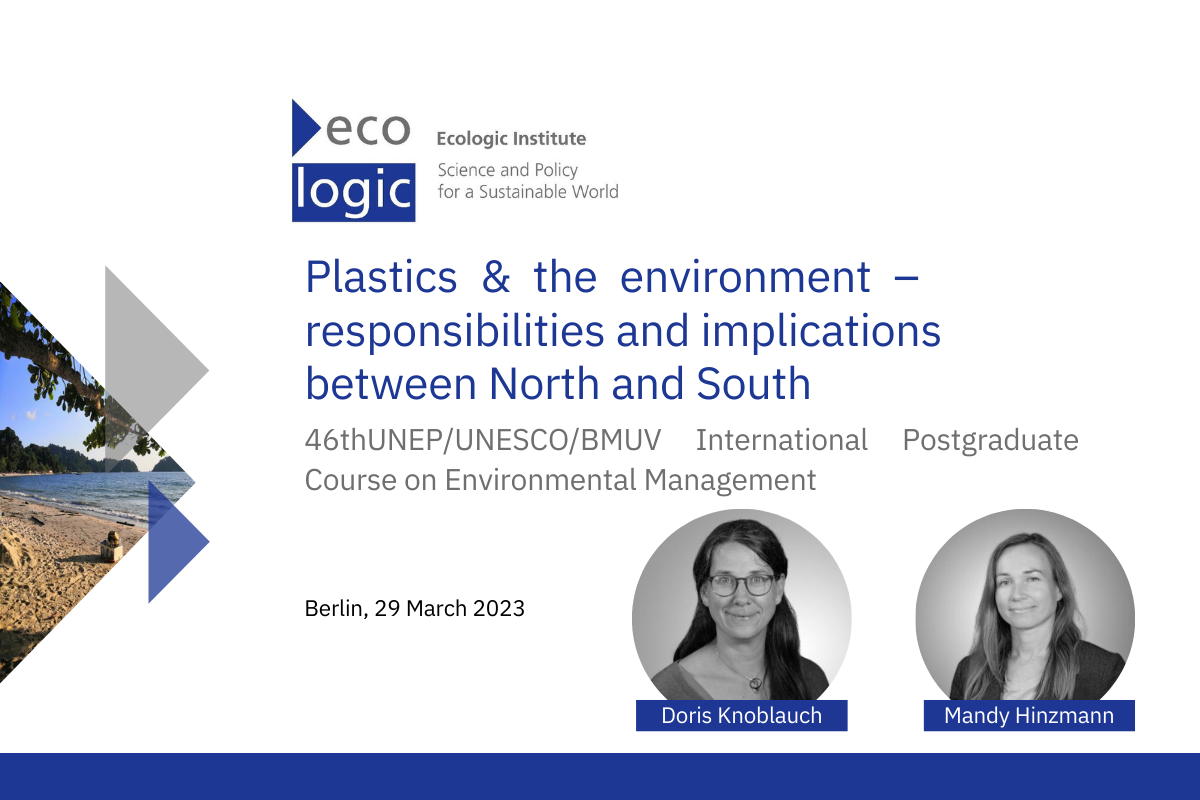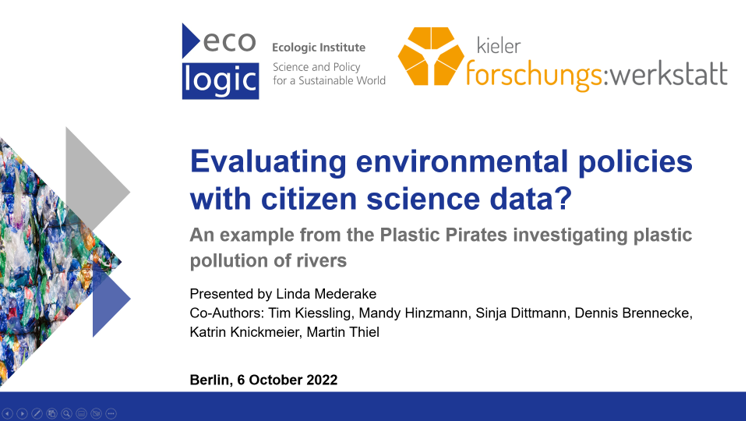Plastics
Plastics in the environment have become a global problem. To solve it, different actors such as product designers, producers, converters, retailers, consumers, recyclers, and disposal companies throughout the value chain need to work together. This calls for interdisciplinary research. Ecologic Institute is exploring various aspects of this issue, such as freshwater and marine environments, soil, recycling, water management, legal requirements, and the regulation of macro- and microplastics. Our team members have expertise on international and European plastics regulation as well as various related policy fields, such as ecotoxicology, microplastics analytics, water treatment, and recycling issues. This allows them to analyze which regulations are still missing and to provide recommendations with a view to strengthening the patchy regulatory framework for the production, use, and disposal of plastics. Ecologic Institute is also represented in fora such as the German roundtable on marine litter. Furthermore, it strengthens civic engagement via citizen science projects which involve members of the public in research.
Contact
Related Topics
Selected Projects for Plastics
Plastic Pirates Plus: Opportunities along the coast
- Duration
-
-
- Funding
-
Postcode Lotterie, Germany
"Plastic Pirates" explore Plastic Litter on the Danube
- Duration
-
-
- Funding
-
Ferry-Porsche-Stiftung, Germany
Challenges for International Climate Protection in the Face of the Global Triple Crisis
- Duration
-
-
- Funding
-
German Environment Agency (UBA), Germany
Technological Options for Reducing Plastic Waste in the Oceans
- Duration
-
-
- Funding
-
Office of Technology Assessment at the German Bundestag (TAB), Germany
The Plastic Pirates Go to the Danube
- Duration
-
-
- Funding
-
German Aerospace Center, DLR Bonn (DLR), Germany
Plastic Pirates – Go Europe!
- Duration
-
-
- Funding
-
Federal Ministry of Education and Research (BMBF), Germany
Microplastics in Soils – International Conference
- Duration
-
-
- Funding
-
German Environment Agency (UBA), Germany
Asia's Opportunity to End Single-use Plastic Pollution
- Duration
-
-
- Funding
-
World Wide Fund for Nature (WWF), Philippines
Advising the EU's International Outreach on the Content of the Mandate for an International Negotiating Committee for a Potential Global Plastics Agreement
- Duration
-
-
- Funding
-
European Commission, Directorate-General for International Cooperation and Development, International
Analysis and Evaluation of Certification Systems for Recycled Plastics
- Duration
-
-
- Funding
-
German Environment Agency (UBA), Germany
A Global Treaty on Plastic Pollution – Perspectives from Asia
- Duration
-
-
- Funding
-
World Wide Fund for Nature (WWF), Germany
Extended Producer Responsibility and Ecomodulation of Fees
- Duration
-
-
- Funding
-
Rethink Plastic alliance, Belgium Zero Waste Europe, International European Environmental Bureau (EEB), International
Scientific Support of the Non-fiction Youth Book "Plastik, Müll und Ich"
- Duration
-
-
- Funding
-
Heinrich Böll Foundation (HBS), Germany
Sustainable Management of Natural Resources in EU International Development Aid
- Duration
-
-
- Funding
-
European Commission, Directorate-General Development and Cooperation (EuropeAid), International
Internet Platform Marine Litter
- Duration
-
-
- Funding
-
German Environment Agency (UBA), Germany
Selected Publications for Plastics
Burgos Cuevas, Natalia et al. (2025): Moving from interconnected crises to systemic solutions. Resource efficiency, nature-based solutions, and systemic transformation as responses to the complexity of the triple planetary crisis. German Environment Agency: Dessau-Roßlau. https://doi.org/10.60810/openumwelt-8108.
Knoblauch, D., Felthöfer, C., Heni, Y., Burgos Cuevas, N., & Best, A. (2025). The Interconnected Challenges of Climate Change, Biodiversity Loss and Environmental Pollution: Drivers, Interdependencies and Impacts of the Triple Planetary Crisis. Interim report, Climate Change 82/2025. German Federal Agency. https://doi.org/10.60810/openumwelt-8107.
Iwaszuk, E.; Spantzel, T.; Kroos, F.; Knoblauch, D. (2025): Integrated Approaches to Addressing the Triple Planetary Crisis: Country Best Practices. Lessons learned from Brazil, Colombia, Japan, New Zealand, Panama, Rwanda and Sweden. Policy paper. Climate Change 81/2025, German Environment Agency: Dessau-Roßlau. https://doi.org/10.60810/openumwelt-8106
Burgos Cuevas, Natalia et al. (2025): Moving from interconnected crises to systemic solutions. Resource efficiency, nature-based solutions, and systemic transformation as responses to the complexity of the triple planetary crisis. Fact sheet. German Environment Agency: Dessau-Roßlau. https://doi.org/10.60810/openumwelt-8102.
Felthöfer, C., Knoblauch, D., & Best, A. (2025). The interconnected challenges of climate change, biodiversity loss and environmental pollution: Drivers, interdependencies and impacts of the triple planetary crisis (Fact sheet). German Federal Agency. https://doi.org/10.60810/openumwelt-8070
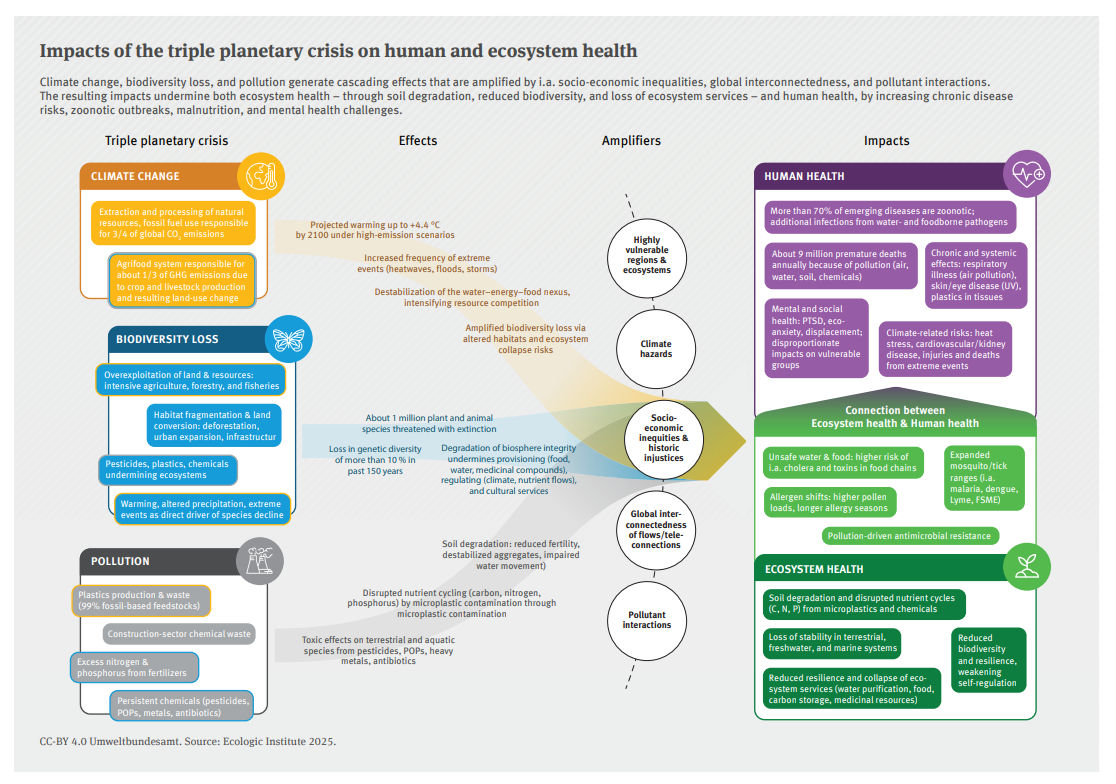
Impacts of the Triple Planetary Crisis on Human and Ecosystem Health
|CC-BY 4.0 Umweltbundesamt. Source: Ecologic Institute 2025.
Umweltbundesamt 2025: Impacts of the Triple Planetary Crisis on Human and Ecosystem Health. Infographic.
Umweltbundesamt 2025: Examples of nature-based solutions as systemic solutions for the triple planetary crisis. Infographic.
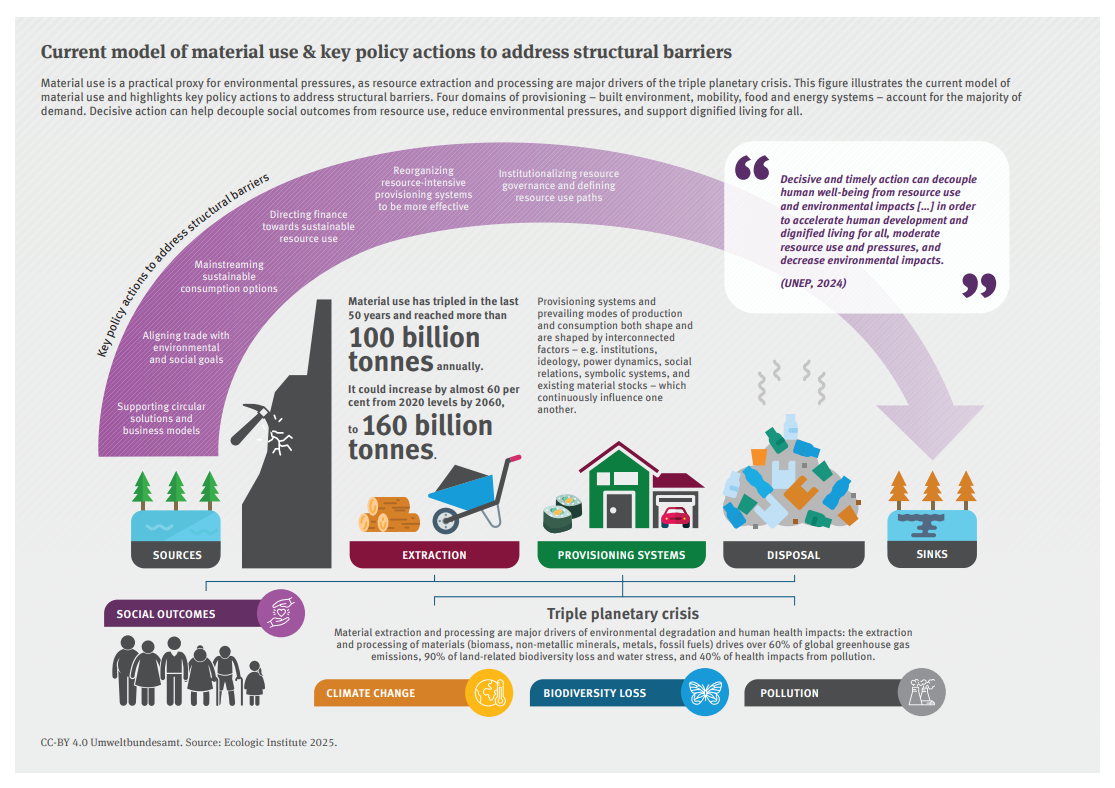
Current model of material use & key policy actions to address structural barriers
|CC-BY 4.0 Umweltbundesamt. Source: Ecologic Institute 2025.
Umweltbundesamt 2025: Current model of material use & key policy actions to address structural barriers. Infographic.
Umweltbundesamt 2025: Drivers and feedback loops of the triple planetary crisis. Infographic.
Infographic: Morales-Caselles, Carmen; Knoblauch, Doris; Aliani, Stefano (2025): An effective plastics treaty for marine life, Science of The Total Environment, Volume 970, 2025, 178941, ISSN 0048-9697, https://doi.org/10.1016/j.scitotenv.2025.178941.
Morales-Caselles, Carmen; Knoblauch, Doris; Aliani, Stefano (2025): An effective plastics treaty for marine life, Science of The Total Environment, Volume 970, 2025, 178941, ISSN 0048-9697, https://doi.org/10.1016/j.scitotenv.2025.178941.
Dittmann, Sinja et al. (2024). Temporal variability of litter pollution of rivers in Germany – A long-term assessment by schoolchildren as citizen scientists, Marine Pollution Bulletin, Volume 209, Part B, December 2024, 117253. https://doi.org/10.1016/j.marpolbul.2024.117253
Knoblauch D and Mederake L (2024). The missing consensus: An analysis of problem definitions and key motivations in the first zero draft for a global plastics treaty. Cambridge Prisms: Plastics, 2, e22, 1–12 https://doi.org/10.1017/plc.2024.29
Scientists’ Coalition for an Effective Plastics Treaty (2024). Policy Brief: Towards an Effective Science-Policy Interface for the Global Plastics Treaty. DOI: 10.5281/zenodo.10996298
Scientists' Coalition for an Effective Plastics Treaty (2024). Primary Plastic Polymers: urgently needed Upstream Reduction. DOI: 10.5281/zenodo.10906376
Kiessling, Tim et al. 2023: What potential does the EU Single-Use Plastics Directive have for reducing plastic pollution at coastlines and riversides? An evaluation based on citizen science data. Waste Management 164 (2023).106-118.
Tessnow-von Wysocki, Ina; Wang, Mengjiao; Morales-Caselles, Carmen; Woodall, Lucy C.; Syberg, Kristian; Carney Almroth, Bethanie; Fernandez, Marina; Monclús, Laura; P. Wilson, Scott; Warren, Matt; Knoblauch, Doris; Helm, Rebecca R. (2023): Plastics treaty text must center ecosystems, Science, 2 Nov 2023, Vol 382, Issue 6670, pp. 525-526.
Plastics regulation
Mederake, Linda; Knoblauch, Doris (2022): Global rules in a new global treaty: Asia's opportunity to end single-use plastic pollution. Published in July 2022 by WWF Philippines.
Stockhaus, Heidi 2022: Verhandlungen zu einem globalen Plastikabkommen – Zeit Verantwortung zu übernehmen. Zeitschrift für Umweltrecht (ZUR), 2022, No. 7-8, 385-386.
Altvater, Susanne, Stephan Sina, Martin Hirschnitz-Garbers et al. 2022: EU Single-Use Plastics Directive – analysis of provisions and potential measures regarding extended producer responsibility. Final Report. Climate Change 42/2022. Federal Environment Agency: Dessau-Roßlau.
Stockhaus, H; Sachdeva, A; Sina, S; Bolopion, E; Mislang, G; Espenilla, J; Guiao, C.T.; Sulistiawati, L.Y.; Popattanachai, N. 2021. A New Treaty on Plastic Pollution – Perspectives from Asia. Published in October 2021 by WWF-World Wide Fund For Nature (Singapore) Limited (WWF-Singapore).
Knoblauch, D.; Mederake, L. (2021): Government policies combatting plastic pollution, Current Opinion in Toxicology, https://doi.org/10.1016/j.cotox.2021.10.003.
Mederake, L., Araujo Sosa, A. und Hirschnitz-Garbers, M. (2020): Mehr Kohärenz bitte! Plastikpolitik in Deutschland, Europa und weltweit. Politische Ökologie, Band 161, 76-82.
Bodle, Ralph; Sina, Stephan (2019), "A treaty on plastic waste. Discussion paper for the international round-table on Tackling global plastic pollution – Ways towards an international convention", Ecologic Institute, Berlin.
Mederake, Linda; Gürtler, Stephan; Knoblauch, Doris (2019): Regulation: Solutions at the Wrong End. In: Heinrich-Böll-Stiftung und BUND – Bund für Umwelt und Naturschutz Deutschland (Eds.): Plastic Atlas 2019. Facts and figures about the world of synthetic polymers. Berlin.
Mederake, Linda; Knoblauch, Doris (2019): Shaping EU Plastic Policies: The Role of Public Health vs. Environmental Arguments. International Journal of Environmental Research and Public Health 2019, 16, 3928.
Simon, Nils et al. (2018): No More Plastics in the Ocean. Gaps in Global Plastic Governance and Options for a Legally Binding Agreement to Eliminate Marine Plastic Pollution. Draft report for WWF to support discussions at the Ad Hoc Open-ended Expert Group on Marine Litter and Microplastics. Berlin: adelphi.
Publications within the BMBF Research Focus Plastics in the Environment
Hinzmann, Mandy; Knoblauch, Doris; Mederake, Linda; Schritt, Hannes; Stein, Ulf (eds.) (2022): Key messages of the research focus "Plastics in the Environment".
Research focus "Plastics in the Environment" (2022): Key messages of the BMBF research focus "Plastics in the Environment". Short version.
J. Bertling*, C. G. Bannick, L. Barkmann, U. Braun, D. Knoblauch, C. Kraas, L. Mederake, F. Nosić, B. Philipp, M. Rabe, I. Sartorius, H. Schritt, U. Stein, K. Wencki, K. Wendt-Potthoff, J. Woidasky (2022): Compendium on Plastics in the Environment, 1st edition 2022. https://doi.org/10.24406/umsicht-n-647637
*Corresponding author
Beyerl, Katharina; Bogner, Franz; Daskalakis, Maria; Decker, Thomas; Hentschel, Anja; Hinzmann, Mandy; Loges, Bastian; Knoblauch, Doris; Mederake, Linda; Müller,, Ruth; Rubik, Frieder; Schweiger, Stefan; Stieß, Immanuel (2022): Wege zum nachhaltigen Umgang mit Kunststoffen: Kernbotschaften sozialwissenschaftlicher Forschung. GAIA - Ecological Perspectives for Science and Society, 31(1), 51-53.
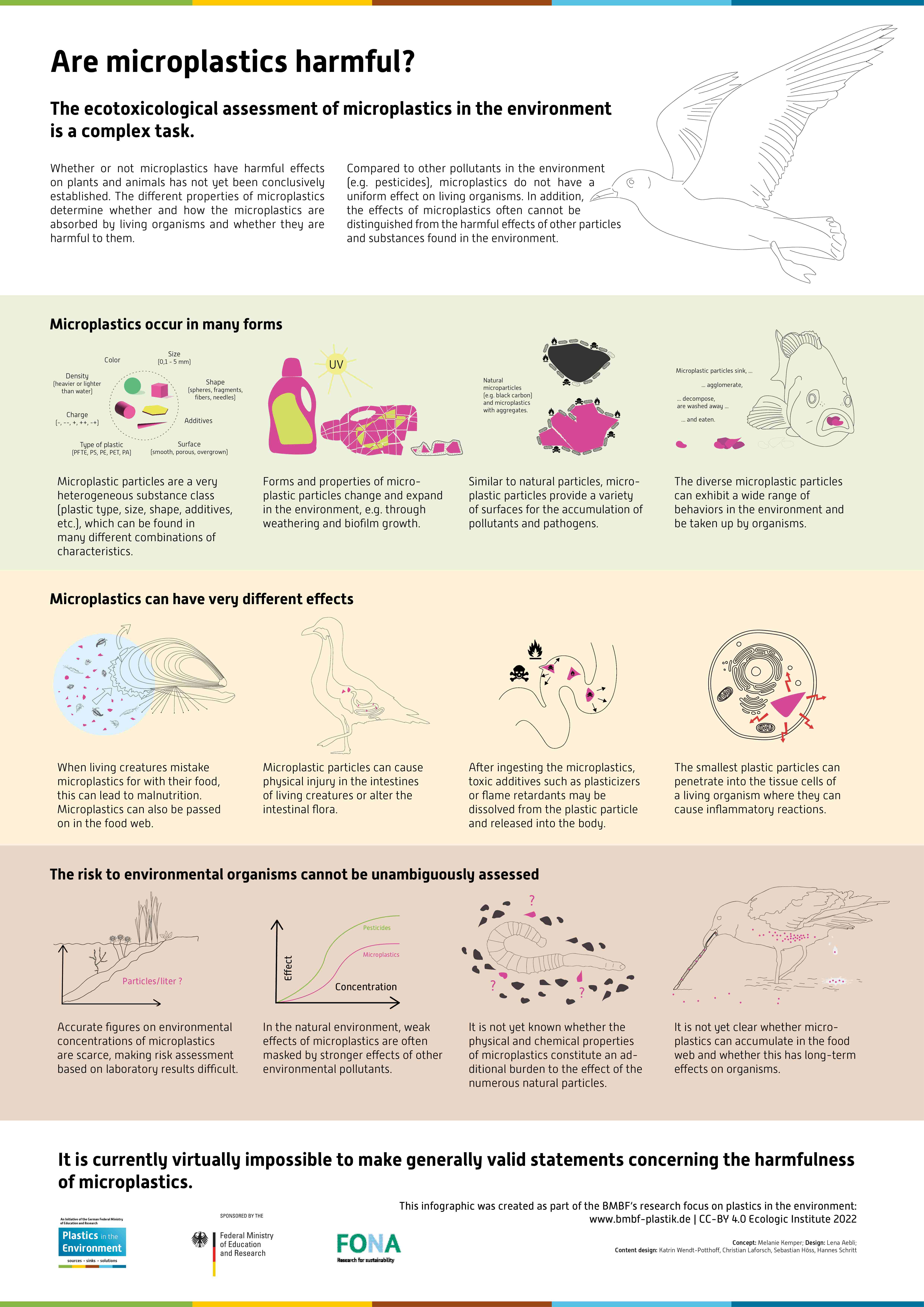
Are microplastics harmful? The ecotoxicological assessment of microplastics in the environment is a complex task
|© Ecologic Institute 2022, CC-BY 4.0
Ecologic Institute (2022): Plastics in the Environment. Are microplastics harmful? Infographic CC-BY 4.0. Online: https://bmbf-plastik.de/en/publication/are-microplastics-harmful
Fact sheet series of the BMBF research focus "Plastics in the Environment – Sources • Sinks • Solutions", 2021-2022.
Ecologic Institute (ed.) 2021: BMBF-Forschungsschwerpunkt Plastik in der Umwelt – Quellen • Senken • Lösungsansätze. Abschlusskonferenz des Forschungsschwerpunkts "Plastik in der Umwelt" am 20./21. April 2021. Berlin: Ecologic Institute.
Braun, Ulrike & Stein, Ulf & Schritt, Hannes & Altmann, Korinna & Bannick, Claus Gerhard & Becker, Roland & Bitter, Hajo & Bochow, Mathias & Dierkes, Georg & Enders, Kristina et al. (2021): Analysis of Microplastics. Sampling, Preparation and Detection Methods. Status Report within the framework program Plastics in the Environment.
Ecologic Institut (2018): Plastic in the Environment. URL: www.bmbf-plastik.de/en
Selected Events for Plastics
Workshop:The Plastic Pirates at the International Danube Festival in Ulm
- Date
-
- Location
- Ulm, Germany
Digital Event:From Packaging to Microplastics: Unwrapping EU and international plastics policy
- Date
-
- Location
- online
Conference:Tackling Microplastics in the Environment
- Date
-
- Location
- Brussels, Belgium
Digital Event:Reusable Transport Packaging
- Date
-
- Location
- online via Zoom
Conference:Microplastics in Soils
- Date
-
-
- Location
- online, Berlin, Germany
Workshop:Plastic Pirates – Go Europe!
- Date
-
-
- Location
- Austria, Belgium, Bulgaria, Germany, Greece, Hungary, Italy, Lithuania, Portugal, Slovenia, Spain
Digital Event:Plastics in the Environment (PlastikNet) – Webinar Series
- Date
-
- Location
- online
Conference:Theme Day: Plastic in the Environment
- Date
-
- Location
- Berlin, Germany
Conference:Plastic in the Environment – Final Conference of the BMBF Research Programme
- Date
-
-
- Location
- online
Selected Presentations for Plastics
Lecture:Plastics and Their Global Impact: Why the World Needs a Binding Agreement
- Date
-
- Location
- Berlin, Germany
Giant Plastic Tap by Canadian artist and activist Benjamin Von Wong in front of the event building of the Fourth Session of the Intergovernmental Negotiating Committee (INC-4) in Ottawa 2024
|© Linda Mederake, 2024
Panel discussion:On the Way to a UN Plastics Agreement
- Date
-
- Location
- Berlin, Germany
Speech:Communication is Key – Best practises from seven years of engaging schoolchildren in plastic pollution research
- Date
-
- Location
- Vienna, Austria
Lecture:Plastics & the Environment – Why We Need a Plastics Treaty
- Date
-
- Location
- Berlin, Germany
Lecture:Plastics, Green Urban Environments and Local Climate Protection
- Date
-
- Location
- Berlin, Germany
Lecture:Plastics & The Environment – Responsibilities and Implications Between North and South
- Date
-
- Location
Speech:The Challenge of Reducing (Micro)Plastic Emissions
- Date
-
- Location
- Paris, France
Speech:Evaluating Environmental Policies with Citizen Science Data?
- Date
-
- Location
- Berlin, Germany
Interview:We Use Citizen Science to Contribute to Planetary Health
- Date
-
- Location
- Berlin/Kiel, Germany
Panel discussion:Cycles not Waste – Expert forum on Circular Economy
- Date
-
- Location
- Neumarkt, Germany
Speech:Reflections on Extended Producer Responsibility under the EU Single-Use Plastics Directive
- Date
-
- Location
- online, Germany









